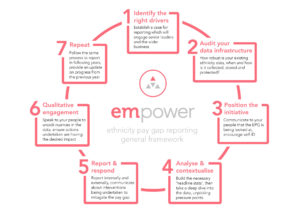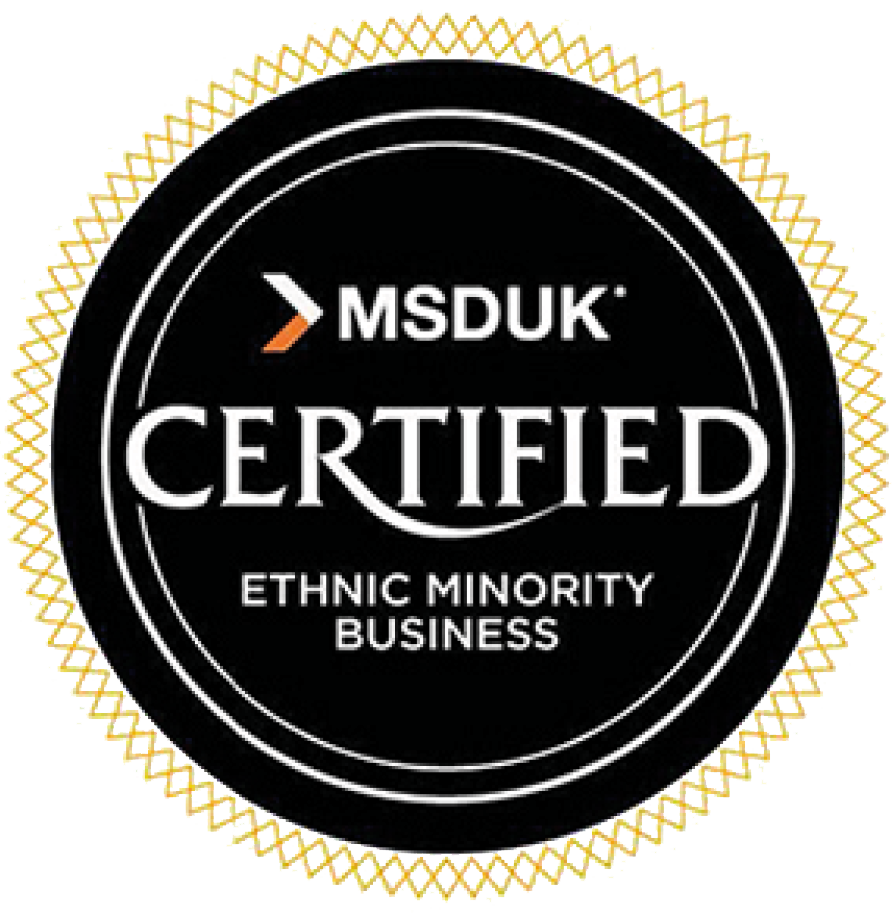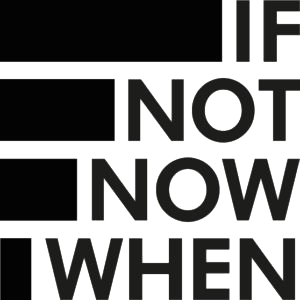Working closely with our members, we have developed a mandate for mandatory ethnicity pay gap reporting. Whether or not EPG reporting becomes mandatory, we firmly believe that it is essential for businesses to examine their ethnicity pay gap, and the signatories of this mandate agree. Alongside our mandate, which encourages businesses to begin looking at their EPG data, we have developed a white paper on reporting in consultation with Deloitte, EY, ITN, KPMG and PwC, which any business can follow to get to a stage in which they too can report their EPG figures.
We are pleased to have the endorsement of Bank of England, Citi, Creative Equals, Deloitte, EY, KPMG, Lloyd’s of London, PwC, ITN, Stella McCartney, Bupa, Jomas Associates, Santander, Sodexo, Reluctantly Brave and WPP on our mandate and framework for reporting to date. We hope that more businesses will join us, harnessing our combined voices to begin to have the necessary conversations around race at work, and the disparities in experience ethnic minorities face in the workplace.
View our ethnicity pay gap mandate and framework here.
In encouraging and supporting businesses to investigate their ethnicity pay gap, we hope that industry will be catalysed to take action to ameliorate disparities in the lived experiences of ethnic minorities in the workplace. Sanjay Bhandari, Partner, EY says of EPG reporting; “Talking about race is hard. Ethnicity pay gap reporting provides vital impetus to overcome the fear of talking about race. Our challenge as leaders is to then hold that gaze and not be deflected into more comfortable topics.”
However, we don’t just want to encourage businesses to report, we also want to equip them with the tools and knowledge to do so.
In consultation with firms which have already reported, we have developed a white paper with comprehensive guidance on how firms can go about reporting. Including best practice on encouraging self-id, how to analyse the data and, importantly, actions to ameliorate any pay gaps which might be uncovered in the process of reporting.
You can download our white paper on reporting here.
If you would like to inquire about joining our mandate, please contact: info@involvepeople.org

Why the framework was developed
Throughout 2018, we here at INvolve have been working closely with our EMpower member firms to help them unpick how the same methodology we have seen used to effect for gender pay gap reporting could be applied to the ethnicity pay gap (EPG). What we discovered was that while there are many challenges involved in EPG reporting, the benefits of examining this data are simply too great to ignore.
The mean pay gap figure tells us some useful information, but the exercise of reporting – gathering data on your people and being able to dissect the figure by business unit, region, office or pay grade and comparing year on year – is invaluable in developing and implementing impactful interventions to ameliorate any organisational biases which would otherwise go undiscovered.
During this process of discovery and consulting with our members to develop solutions to common issues in EPG reporting, the possibility of the UK government rolling out mandatory EPG reporting began to look like it would become a reality. Our #1 Ethnic Minority Role Model, Karen Blackett was appointed race equality business champion by the Prime Minister, and on 12 October, the government launched a consultation on mandatory EPG reporting.
In the time since the government launched their consultation, we at INvolve developed comprehensive guidelines for reporting in addition to the above framework




